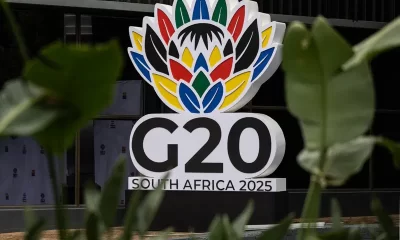Economic Issues
Evaluating the Effectiveness of Tax Incentives in Driving Economic Diversification in Nigeria -By Kehinde Emmanuel Oladele
The primary challenge undermining the effectiveness of tax incentives in Nigeria lies in weak institutional capacity. The Federal Inland Revenue Service (FIRS) and the Nigerian Investment Promotion Commission (NIPC) tasked with overseeing the administration of incentives, are often under resourced, leading to lapses in monitoring and enforcement. Additionally, pervasive corruption and bureaucratic bottlenecks have created avenues for abuse, where entities that do not meet the stipulated criteria benefit from these incentives. Another critical issue is the disconnect between tax incentives and complementary policies.

The mono-product nature of Nigeria’s economy has long positioned it as a rentier state heavily reliant on oil revenue. With over 80% of the nation’s foreign earnings derived from crude oil and petroleum products, this overdependence has exposed the economy to external shocks stemming from the volatile global oil market. Consequently, the quest for economic diversification has been a consistent policy agenda for successive governments. Among the fundamental policy instruments deployed is tax incentives. Tax incentives have taken center stage, ostensibly to stimulate non-oil sector growth, attract investment, and ultimately foster industrialization in Nigeria. However, it is imperative to state that their practical effectiveness remains contentious, thereby necessitating a critical academic examination by this Writer.
Tax incentives, as a component of fiscal policy, are strategically employed to bring into reality an environment conducive for investment, mitigate operational barriers, and invigorate sectors that are underperforming. Importantly, these tools have taken various forms in Nigeria, including tax holidays under the Pioneer Status Incentive (PSI), capital allowances, and value-added tax (VAT) exemptions aimed at specific industries and these mechanisms are designed to attract both domestic and foreign capital, particularly in sectors that are seen as crucial for economic diversification not limited to the oil sector. Notable among these policy instruments are the provisions of the Finance Acts 2023, which have expanded the scope of tax incentives. The reforms have introduced reduced corporate tax rates for small businesses and offered sectoral exemptions, particularly in agriculture and renewable energy, areas considered essential for Nigeria’s diversification strategy. Despite the commendable objectives of these reforms, the practical outcomes have been mixed. This writer has humbly observed that the anticipated shift towards significant growth in non-oil sectors, such as manufacturing, agriculture, and technology, has remained limited before our eyes in Nigeria and nothing significantly has been done to it.
While there is an observable inflow of investment in certain industries, it has not been proportionating to the scale needed for substantial economic diversification. In fact, Nigeria’s over-reliance on oil and gas continues to undermine the broader objectives of these incentives. More notable is the fact that several factors have contributed to this stagnation which include weak institutional enforcement, insufficient complementary infrastructure, and a lack of coherent targeted implementation strategies. However, this persistent underperformance calls for a deeper examination of how these incentives are structured, applied, and monitored, and whether they are sufficiently tailored to address the distinct challenges facing Nigeria’s economy. Meanwhile, the efficacy and functionality of tax incentives can be examined through Keynesian Economics and Supply-Side Economics. While Keynesian theory emphasizes the role of fiscal stimuli, like the tax reliefs, in driving aggregate demand and investment, which are critical for economic expansion. Conversely, Supply-Side Economics discloses the importance of reducing tax burdens to incentivize production, innovation, and employment in high-growth sectors. In additionally to the theories is Public Choice Theory which highlights institutional inefficiencies, corruption, and rent-seeking tendencies that often plague the administration of such incentives, limiting their economic utility. Applying these theories provides a comprehensive framework for analyzing the gap between policy intent and implementation in Nigeria’s tax regime.
Now, global paradigms present the transformative potential of well-implemented tax incentive regimes. The South Korea’s strategic use of tax holidays and R&D tax credits catalyzed the rapid development of its manufacturing and technology sectors, turning the country into an industrial powerhouse. Similarly, Singapore employed a meticulously structured tax system, combining low corporate tax rates with sector-specific incentives, to attract multinational corporations and establish itself as a global financial hub. Unarguably, it is lucid that these economies designed their tax policies around robust data and sectoral priorities and integrated them with other enablers like infrastructures, legal reforms, and a skilled workforce among others. In stark contrast, Nigeria’s approach has often been marred by a lack of strategic focus and institutional weaknesses. While incentives like the Pioneer Status are designed to stimulate non-oil sector growth, reports from Nigeria Extractive Industries Transparency Initiative (NEITI) reveal systemic abuse of these incentives, with oil and gas companies inappropriately benefiting from schemes intended for non-oil industries. This undermines their intended purpose, exacerbating revenue leakages and limiting economic gains.
Disappointedly, despite the proliferation of tax incentives, Nigeria’s non-oil sector growth remains underwhelming. According to the National Bureau of Statistics (NBS), the non-oil sector contributed 94.30 percent to the nation’s GDP in the Q2 of 2024 which is lower than the 94.66 percent recorded in Q2 of 2023, but higher than 93.62 percent in Q1 of 2024. However, manufacturing sectors which are critical to diversification, declined as its contribution to the nation’s Gross Domestic Product (GDP) dropped by 20.95% over the first half of 2024. Additionally, unemployment rates was reported to decline from 5.3% in the first quarter of 2024 to 4.3% and in October 2024, inflation rate increment was 33.88% relative to the September 2024 headline inflation rate of 32.70%. Moreover, the lack of data-driven policy formulation has hampered the effective targeting of these incentives. Unlike the developed world where incentive frameworks are periodically reviewed and tied to measurable benchmarks, Nigeria’s policies often lack clarity on eligibility criteria and performance outcomes and the absence of a centralized database to tracking the cost-benefit dynamics of these incentives further complicates their evaluation.
The primary challenge undermining the effectiveness of tax incentives in Nigeria lies in weak institutional capacity. The Federal Inland Revenue Service (FIRS) and the Nigerian Investment Promotion Commission (NIPC) tasked with overseeing the administration of incentives, are often under resourced, leading to lapses in monitoring and enforcement. Additionally, pervasive corruption and bureaucratic bottlenecks have created avenues for abuse, where entities that do not meet the stipulated criteria benefit from these incentives. Another critical issue is the disconnect between tax incentives and complementary policies. However, it is needful to state that tax incentives alone cannot address the structural bottlenecks stifling non-oil sector growth. Therefore, without improvements by the government in critical infrastructure not limited to power, transportation, and industrial parks, the cost of doing business remains prohibitively high, deterring investment despite the existence of tax incentives in Nigeria.
At this juncture, in order to ensure that tax incentives effectively drive economic diversification, it is recommended that Tax incentives must align with national economic priorities and sectors with significant potential for value addition should receive preferential incentives. There is also a need for the introduction of measurable benchmarks for evaluating the effectiveness of tax incentives and companies benefiting from these schemes must demonstrate clear contributions to job creation, exports, or sectoral growth. Additionally, equipping FIRS and NIPC with the technological and human resources needed to monitor compliance and prevent abuse should be prioritized. Lastly, there is an urgent need for the establishment of a transparent framework for reviewing and publishing the outcomes of tax incentive policies, ensuring accountability and fostering public trust and Nigeria should emulate successful models from developed by creating a balance between incentivization and strict enforcement of performance conditions.
Conclusively, it is to be emphasized that Tax incentives have significant potential to catalyze Nigeria’s economic diversification, but their current implementation leaves much to be desired. As earlier reiterated, a strategic, transparent, and data-driven approach is essential to transform these incentives into a robust tool for sustainable development and learning from global best practices with addressing systemic inefficiencies can make Nigeria charts a path towards a more diversified economy and ultimately reduces its dependence on oil sector but increases an inclusive growth across important sectors.
About the author
Kehinde Emmanuel Oladele is an undergraduate law student at Ahmadu Bello University, distinguished by his passion for legal research and writing. His academic pursuits are focused on the intricate domains of Taxation, intellectual property and Finance. He has garnered acclaim through numerous publications addressing pertinent contemporary socio-legal issues. His commitment to scholarly exploration and insightful analysis underscores his dedication to advancing legal discourse








